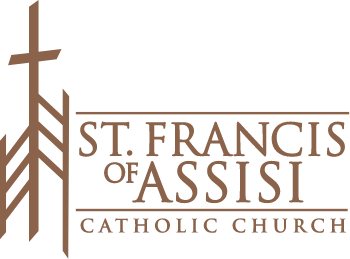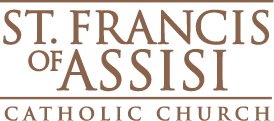The Catechism reminds us, that the human person is “the only creature on earth that God has willed for its own sake.” (CC356) This means that the human person has not only received life from God the Father, but has also received autonomy over that life, using intellect and free will, to direct the entirety of his life toward eternal salvation.
Part of this autonomy is the proper care of the human body according to God’s design. In other words, we are stewards of the human body we have received. As stewards, having received our human body as a gift, we are not absolute masters over our body, as St. Paul reminds us, “Do you not know that your body is a temple of the Holy Spirit within you, whom you have from God, and that you are not your own? For you have been purchased at a great price. Therefore, glorify God in your body” (1 Cor. 6:19-20).
As stewards, and not absolute masters, we are called to protect our human body from harm, violence, abuse, or degradation. All human life is precious, from the moment of conception to natural death, and this human life includes the dignity of both the body and soul. As stewards of a physical body, we are called to use our body according to God’s design and in keeping with human dignity. The Ethical and Religious Directives for Catholic Health Care Services states, “The truth that life is a precious gift from God has profound implications for the question of stewardship over human life. We are not the owners of our lives, and hence, do not have absolute power over life. We have a duty to preserve our life and to use it for the glory of God; but the duty to preserve life is not absolute, for we may reject life-prolonging procedures that are insufficiently beneficial or excessively burdensome. Suicide and euthanasia are never morally acceptable options.”
Humans, by definition, are physical and spiritual. We are not like angels, who have no body. Nor are we simply a collection of chemical interactions, without a spirit. We are a body-soul unity; or, as John Paul II coined, we are an embodied-spirit. Even though, for a time after death, our body and soul are separated, until the final restoration of all things in Christ, that does not mean that our bodies are unessential to our soul. The separation of body and soul at death is unnatural and a result of original sin. This is why, at the final judgement, “our bodies will be raised” (1 Cor 15:43).
As embodied spirits, we must remember that our bodies are not subservient to our soul, nor separate from our soul. Like blood in the heart, though we can talk about one or the other, the two of them must simultaneously exist to live.
Some, however, see the soul’s relation to the body as if it is a driver inside a car. A driver is something different than a car. Indeed, a driver can get in and out of a car and can even change cars. Some consider the human body in the same way. They reason that their “self” is different then their “body”, like a driver is different from a car. Deducing from this kind of logic, such people reason that you can treat the body like an owner treats its car, changing or exchanging parts, or using or abusing it as one sees fit. This is a form of dualism that the Church has stood against for her entire existence, and it leads to many morally poor decisions such as self-mutilation, physical abuse, sexual exploitation, or illicit surgeries or experimentations.
But the Church, knowing that the human person is body and soul from the first moments of conception and natural death, has always taught that we are an embodied-spirit and that our bodies “are not our own”. Rather, created in the image and likeness of God, we have received our body as a gift and must care for them as stewards. Therefore, though we have a certain autonomy over the life that has been freely given to us, there are limits to what we can do to and with our body. And those limits are set by an attitude of stewardship. “Acts undertaken in the sprit of stewardship are legitimate; those undertaken with a spirit of absolute autonomy are illicit.” [1]
[1] Kopaczynksi, Rev. Germain. Selected Moral Principles from Catholic Health Care Ethics: a Manual for Practitioners. The National Catholic Bioethics Center, Philadelphia. 2020.
Father Jarrod Lies, Pastor — Monthly Medical Ethics Reflection

